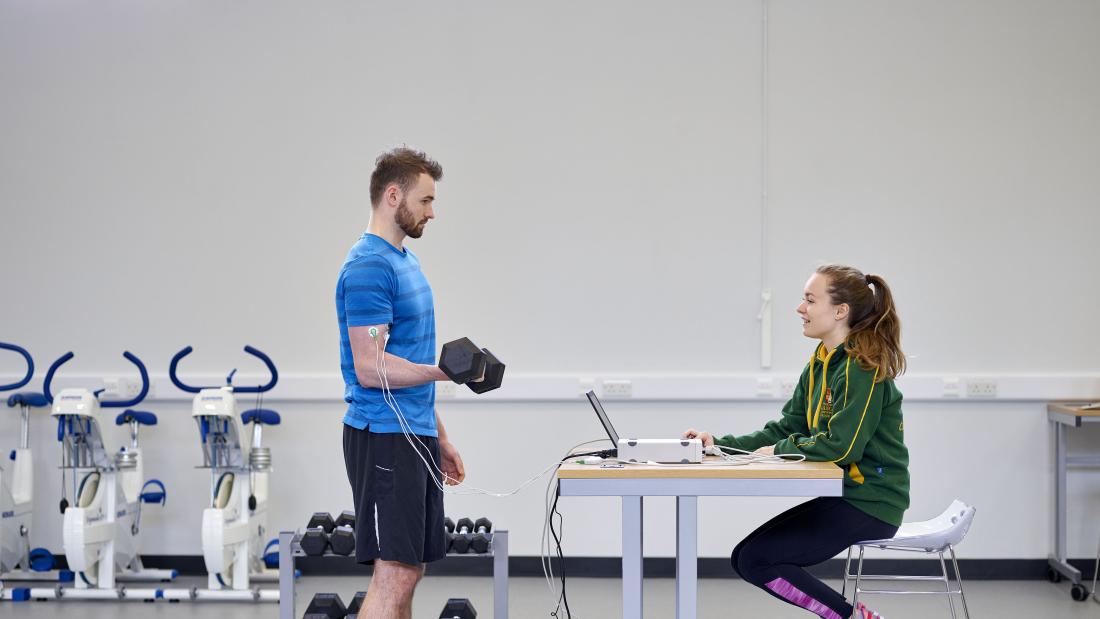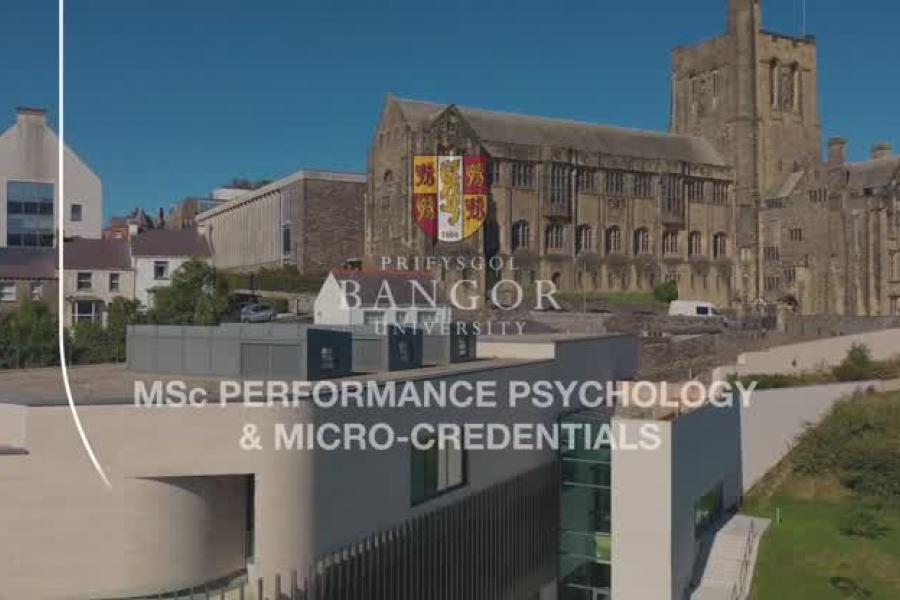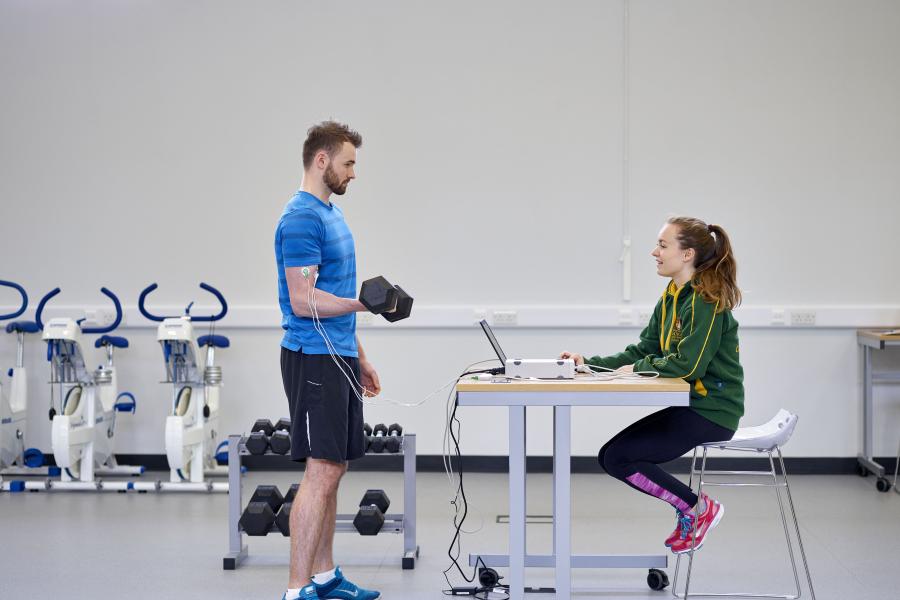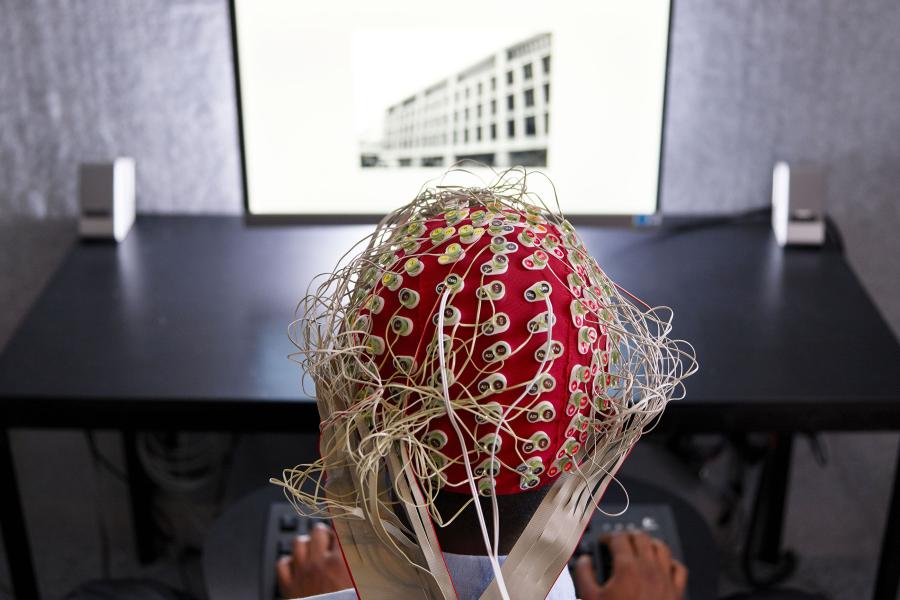About This Course
Do you often wonder why performance breaks down under pressure or how to get the best out of your team. Our online distance learning MSc Performance Psychology has been designed for those with interest in performance psychology. This flexible part-time course better prepares you to perform as an individual, a coach, a team leader, or to work as an apply your knowledge about performance psychologist in a range of settings including sport, business and the performing arts.
Delivered by staff from the Institute for the Psychology of Elite Performance (IPEP), this online degree is modelled on existing psychological components of the BPS-accredited MSc Sport and Exercise Psychology that IPEP currently delivers.* Modules are delivered by IPEP staff who currently work within elite level sport and business and publish research that is judged to be of Internationally Excellent or World Leading (latest Research Exercise Framework). During the course there is ample opportunity for you to interact with staff members, including: personal online tutorials with module leaders, group work and tutorials. You will also work one-to-one with IPEP academic staff who will supervise you on your dissertation or research project modules.
The difference between the 2-year and 3-year options is as follows:
- on the 2-year version you will go onto the research project/dissertation immediately after completing the year two taught modules. The research project/dissertation will be completed over the summer, with the course finishing two years after commencement;
- on the 3-year route, you will instead complete the research project/dissertation during the 3rd academic year (September-June).
Whichever option you choose, there are three exit points:
- PGCert (after year 1) 60 credits
- PGDip (after year 2) 120 credits
- or, for the MSc you would successfully complete the research project/ dissertation and gain 180 credits.
Alternatively, if you want to study a standalone module, that is also open to you. Please visit our short-course pages for more information.
*Please note that the MSC Performance Psychology is not BPS accredited.
Programme Length
Part-time by Distance Learning - you have the option to study for the MSc over two or three years.
Research Opportunities
The academics involved with this degree have extensive research links with external bodies and companies, which are fully utilised in ensuring that the modules are relevant to the modern work and research environment graduates will enter.
The course is aimed at anybody who performs in high-pressure environments. This ranges from business, the armed forces, performing arts, NHS, and medical staff.
My name is Stuart Beattie, a Reader in Performance Psychology. I am also the course director for the Distance Learning degree in Performance Psychology. This course goes beyond the traditional sport-stress-performance model and applies theories from mainstream and sports psychology to various performance domains.
The main focus of the course is to teach why performance breaks down under pressure, looking at individual reactions to stress. We then present students with problems to solve, where they must apply theory to practice. Everything is about solving real-world problems.
You will receive all the lecture content in week one for the 12-week course, allowing you to progress at your own pace. The course is entirely online, making it accessible to everyone worldwide.
Course Content
What will you study on this course?
All lectures on this degree will be recorded for you to watch in your own time and we will be offering a number of live catch up seminars with the lecturers across each module.
On this distance learning performance psychology degree you will study a variety of topics including:
- Personality, Team and Individual Resilience
- Stress and Performance
- Motivation
- Mental Toughness
- Team Cohesion and Dynamics
- Leadership
- Coach-Athlete Relationship
- Psychological Skills Training
- Accelerating Skill Development
- Identifying and Developing Talent
- Individual Characteristics Relating to Peak Performance.
To complete the degree, students will then be given the opportunity to conduct applied or theoretical research projects or a dissertation on a topic of their choice.
Year 1 modules
Year 1 modules are all 10 Credits and you must choose 6 of them (60 credits in total):
Performing under Pressure examines the ability to deliver optimal performances when it matters the most. Sport coaches and psychologists are expected to hold the tools to get the best out of athletes in high-pressure scenarios – this is a key part of the coach / psychologist remit. This module has been designed with exactly this issue in mind.
Understanding Personality aims to develop your understanding in what motivates athletes and to understand more about yourself at the same time! This module will explore the human condition; who we are, our motivation, and our interactions with others. You will do practical exercises from home, which will help you understand more about yourself and others. These exercises form the basis of the work that the course leaders do with elite sport and business.
Psychological skills Training will teach you a critical appreciation for the contemporary research literature primarily surrounding psychological or mental skills; with an emphasis on self-talk and imagery. Importantly, the reasoning for doing so, is to be able to apply this knowledge in form of effective interventions.
Individual Performance Psychology will help you explore direct and interactive relationships between personality, psychological resources, emotions, cognition's upon preparation and performing under pressure. Using information gathered from a variety of sources (self-report questionnaire data, observational data, performance data, and interview data) you will design a bespoke intervention for an athlete that will help them to perform at a more consistent level across time.
Accelerating Expertise will help you to 'unfog' the often misty answers to the question of 'how to develop expertise?' Theory will focus on cognitive processing and skill acquisition principles and will reflect the critical issues identified within the literature. This will then be applied to a sport or situation of the student’s choice in order to provide practical solutions to the question of 'how to accelerate expertise?'
Psychology of Team Performance aims to advance your understanding of developing effective teams and teamwork. This is particularly the case for interactive sports teams (such as football, rugby etc). In fact, the team building business is a multi-million pound industry. In this module we will look at some the prominent factors that contribute towards the development of effective sports teams.
Year 2 modules
Compulsory Modules (10 Credits each)
Coach Athlete Relationship is often a very complex relationship. Both the coach and the athlete want to achieve success but often have opposing views about how to get there. This module will focus on psychological and cognitive processes of the coach athlete relationship. Between and within person discrepancies are highlighted as an important aspect of the coach-athlete dyad where opposing views are often problematic and communication is key.
Talent Development will examine the critical role of demographics, psychosocial, practice and instruction so we can understand how Talent develops. Throughout the course, we will address the implications of current talent development research on coaching. When doing this we will make connections between core science and the practical experience of the course leaders work with Elite Sport (e.g., UK Sport), to map out which aspects of an athletes developmental journey lead towards excellent sporting performance.
Compulsory 20 credit module
Advanced Research Skills is a fabulous hands-on opportunity to learn about research design and data analysis, skills that are critical to reading and writing research material, during your degree and beyond. Staff will help you develop the necessary skills to run your own programme of research, and to evaluate that of others. These skills are not only important for research but are also important to enable you to think critically to select the best interventions to apply in real world vocational practice.
And one of these two:
Dissertation Proposal helps you plan and design your own dissertation in an area of interest to you. This choice may be based on future career aspirations, previous experience and expertise, or equally, just because you are passionate about a particular topic area.
Research Project Proposal has been developed to help you plan and design your own project in an area of interest to you. This choice may be based on career aspirations, previous experience and expertise, or equally, just because you are passionate about a particular topic area. Ethical application to conduct research will also feature strongly.
Year 3 module
(Summer of year 2 for those on 2 year route). Year 2 choices will dictate which of the two options you do.
Dissertation follows on from your dissertation proposal where you will actually carry out the agreed proposal. Your dissertation should be driven by a goal to contribute in a meaningful way to the current knowledge base within a specific area. Think of the dissertation as a large critical research review
or
Research Project follows on from your research project proposal. In this module you will actually collect and analyse your own data. Then, you will write a research article based on your project proposal and your own results.
- Year 1 modules: In year 1 you complete 60 credits by choosing 6 modules.
- Year 2 modules: In year 2 there are 2 compulsory 10 credit modules then a choice of one of a pair of 20 credit modules which will be determined by the approach you wish to take to research which is basically one of undertaking a literature review of current published research or undertaking your own original research and data collection.
- Year 3 modules: In year 3 (Summer year 2 for those on 2-year route) you will do 1 compulsory module determined by your year 2 choices.
Please note: Course content and module information is for guidance purposes only and may be subject to change.
Entry Requirements
Candidates will typically require at least a 2.ii honours degree. We also encourage applications from those with non-graduate or alternative professional qualifications and from those who can demonstrate at least 3 years relevant work experience within a high-performance environment (e.g. as an athlete, coach, professional musician, business or finance executive or within a broad range of other professional roles).
International applicants whose first language is not English or Welsh are normally required to provide evidence of English language proficiency. Minimum English language requirements are IELTS 6.0 (with no element below 5.5), or equivalent. The University offers pre-sessional language courses before courses start through ELCOS for those who need additional support to reach the required level.
For more information about the course, please contact Dr Stuart Beatie (Course Director).
Careers
Our postgraduate programmes are designed (with further training where appropriate) to enhance the career prospects. Our learners come from across the globe and from a breadth of disciplines, including:
- Professional sport coaches and instructors (e.g. rugby, cricket, Gaelic football, and endurance running coaches)
- UK Coaching team members
- Elite athletes (e.g professionals in football, Gaelic football, cricket and rugby players, golfers)
- Performance directors for professional Rugby Union teams
- Opera performers
- Professional musicians
- Business and finance leaders
- Senior management from organisations such as MasterCard and Facebook
- RAF helicopter rear crew
- Air traffic controllers
- Police officers
- General practitioners and anaesthetists
- NHS managers.




